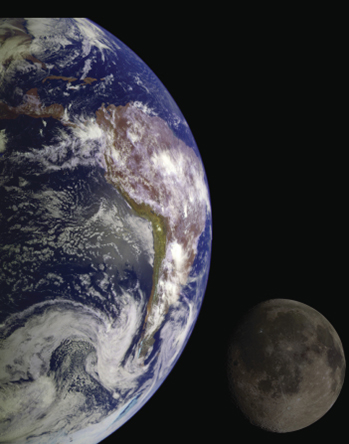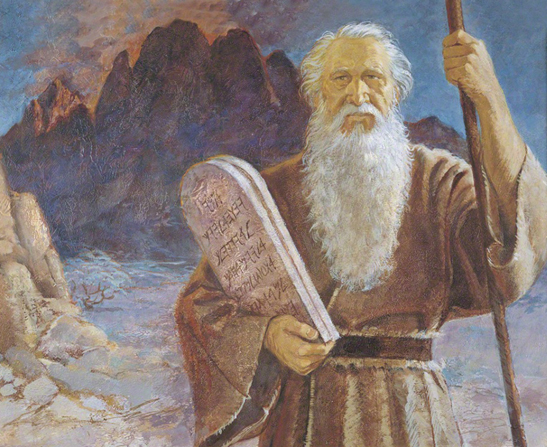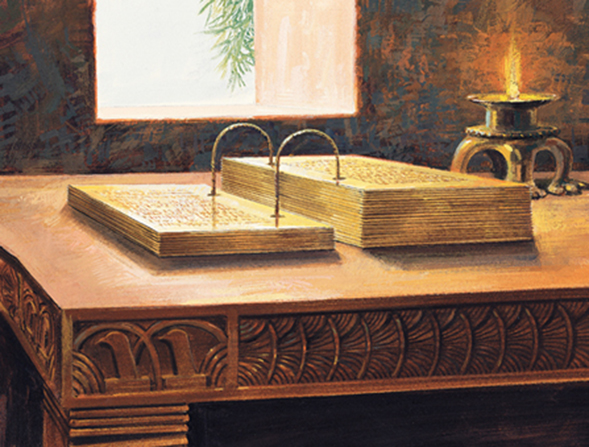All too often science and faith have a perceived relationship much like two members of a failing marriage whose differences just can’t be reconciled. A number of papers have been written on this perceived rift between science and religion, and is a topic that people with interests in both must confront sooner or later. This paper presents my own discoveries in the establishment of a healthy science and faith relationship.
 Since I was a kid, I have loved science, in all its flavors. The thought of Archaeologists with their brushes and hammers, uncovering history and assembling stories from their discoveries is exhilarating. I respect the Physicist’s who are able to determine astronomical distances of objects in space, and their chemical compositions, all from our own earth through mathematics and observation. The classifications and understanding we have of anatomy and physiology, geology, you name it – it’s all awesome. Then to consider that all we know today of science is the result of many inspired individuals over thousands of years is marvelous. I revere science and those who have willingly shared their discoveries with the human race.
Since I was a kid, I have loved science, in all its flavors. The thought of Archaeologists with their brushes and hammers, uncovering history and assembling stories from their discoveries is exhilarating. I respect the Physicist’s who are able to determine astronomical distances of objects in space, and their chemical compositions, all from our own earth through mathematics and observation. The classifications and understanding we have of anatomy and physiology, geology, you name it – it’s all awesome. Then to consider that all we know today of science is the result of many inspired individuals over thousands of years is marvelous. I revere science and those who have willingly shared their discoveries with the human race.
 Also since a child, I have loved faith and religion. I love the stories of great individuals who did great things because of their belief in an unseen supreme being. I especially love the many accounts of those people who over time were able to behold the Creator, and other beings with their natural eyes. Like the physical scholars, these spiritual scholars have laid down the collective spiritual understanding among all mankind through scripture, and I revere their spiritual contributions.
Also since a child, I have loved faith and religion. I love the stories of great individuals who did great things because of their belief in an unseen supreme being. I especially love the many accounts of those people who over time were able to behold the Creator, and other beings with their natural eyes. Like the physical scholars, these spiritual scholars have laid down the collective spiritual understanding among all mankind through scripture, and I revere their spiritual contributions.
I have often wondered if science could only find evidence that the bible is more than a folk tale then the world might be convinced of the authenticity of Christianity. Or I’ve had a similar thoughts about the Book of Mormon’s reality being proven by a mere South American archaeological discovery of some kind. In other words, part of me wants science to verify my faith.
As I have thought upon my faith and science perceptions, I realize that I have always hesitated to fully embrace science for fear of betraying my faith. Likewise, when I am involved in science, it is disappointing to me that I must refrain from openly interjecting scriptural history, gospel insights, prayer, and divine confirmation, lest I breach scientific protocol.
In old times, church leaders felt some reservation for science, perhaps from observing the occasional apostasy that resulted from scholarly activities. But then another thought process emerged among the LDS scholars of the time, one that I wholeheartedly agree with. In an interesting letter between Eldon Tanner and Henry Eyring Sr. (Current Apostle’s father), he said: “Some people drift when they study, but some people drift when they don’t study. If the Church espouses the cause of ignorance, it will alienate more people than if it advises man to seek after truth, even at some risk.” (Eldon Tanner to Henry Eyring, 16 Oct. 1967, and Henry Eyring to N. Eldon Tanner, 19 Oct. 1967, in possession of Mrs. Winifred Eyring, Salt Lake City, Utah.) If apostasy is to occur in a loved one’s life, I would much rather it be through their intellectual efforts, rather than lazily cowering away unable to explain their doctrinal hangups. A testimony is built piece by piece and if it is to be undone, it should be undone in like manner.
The recent reconciliation I have experienced comes from understanding that the tension among science and faith is a good thing. If science could explain the Savior’s miracle of turning water into wine, would it cause greater belief in Jesus’ greatness? Or what if meteorological explanations were given for Moses’ parting of the Red Sea; would all nations of the earth be convinced of the reality and divine origin of the Holy Bible? Doubtful.
The Book of Mormon explains a time when signs (evidence of God’s existence) were abundant. People believed initially and over time doubted their beliefs. “And it came to pass that thus passed away the ninety and fifth year also, and the people began to forget those signs and wonders which they had heard, and began to be less and less astonished at a sign or a wonder from heaven, insomuch that they began to be hard in their hearts, and blind in their minds, and began to disbelieve all which they had heard and seen” (see 3 Ne. 2:1). I believe that God is able to explain every miracle that has ever taken place according to what we might think of as scientific laws or principles. But such an explanation would do nothing to improve faith.
As the Resurrected Savior said a few chapters later: “I will try the faith of my people” (3 Ne 26:11). If scholarly research proved all of our spiritual doubts and questions, what room would there be for faith? As much as I love scientific explanations, faith-based confirmations are far more satisfying. I’ll take it on faith first, and then if science can prove those things second – great; if not – I’ll just give science a bit more time to catch up. Actually, I think the Lord has done a remarkable job keeping the many archaeological evidences that might prove his authenticity hidden, that we might give Him a shot on faith.
Neal A. Maxwell described a future day when the opportunity to confess Christ’s divinity on faith will pass as he said, “And, if you sense that one day every knee shall bow and every tongue shall confess that Jesus Christ is the Lord, why not do so now? For in the coming of that collective confession, it will mean much less to kneel down when it is no longer possible to stand up!” (Ensign, November 1974; Why Not Now? Elder Neal A. Maxwell). Blessings are far greater when we do what’s right by choice, rather than being compelled, and without the object of belief in plain sight.
But I understand the temptation to only believe in what is visible. There is something awesome about being able to understand some phenomenon so thoroughly through observation and analysis, that it can be modeled, and repeated through controlled circumstances, and ultimately establishing fact (in science, or truth in faith). It is a feeling that compels mankind to aspire.
 The greatest scientific scholars of all time have followed a simple routine known as the scientific method to establish knowledge. They began with questions, conducted research and a thorough review of literature, formed theories, tested those theories, and ultimately drew conclusions based on their discoveries. Their conclusions are registered into science through academic and scientific journals which then become the embodiment of knowledge. New research builds upon results of previous research. Previous theories or laws can be proven correct or incorrect as new experiments are conducted.
The greatest scientific scholars of all time have followed a simple routine known as the scientific method to establish knowledge. They began with questions, conducted research and a thorough review of literature, formed theories, tested those theories, and ultimately drew conclusions based on their discoveries. Their conclusions are registered into science through academic and scientific journals which then become the embodiment of knowledge. New research builds upon results of previous research. Previous theories or laws can be proven correct or incorrect as new experiments are conducted.
The contributing scholars of our collective scientific understanding of natural phenomenon have been so proficient in their work, society hails many of them as the fathers of their respective fields of study, and while some only live in the realm of theory, many of their findings are established as natural unalterable law. Last of all they hand their truth discoveries on to humanity for its general benefit, along with instructions to repeat the experiments.
Those limited to scientific thinking, tend to consider faith as a weak approach to the pursuit of knowledge. On the other hand, there are many in the religious realm who view science as an unnecessary step in arriving at knowledge, and all that is needed is faith. Both views in my opinion are limited. This dual relationship follows the doctrine, “Seek learning, even by study and also by faith” (Doctrine and Covenants 88:118). I offer the following graphic as an illustration that science and faith possess an intricate and important relationship.
 The scientific approach to gaining knowledge is completely embodied in the faith approach for acquiring knowledge, not the other way around. Without science or in broader terms, study, research, effort, etc., faith would not be complete. Notice further that science culminates at conclusions, an important step in arriving at a divine confirmation. I might also add that scientific knowledge has a tendency to aggrandize the individual(s) who arrived at the conclusion; whereas conclusions with divine confirmation aggrandize or confess the Lord’s hand in all things (see Doctrine and Covenants 59:21).
The scientific approach to gaining knowledge is completely embodied in the faith approach for acquiring knowledge, not the other way around. Without science or in broader terms, study, research, effort, etc., faith would not be complete. Notice further that science culminates at conclusions, an important step in arriving at a divine confirmation. I might also add that scientific knowledge has a tendency to aggrandize the individual(s) who arrived at the conclusion; whereas conclusions with divine confirmation aggrandize or confess the Lord’s hand in all things (see Doctrine and Covenants 59:21).
I know those who seek divine confirmation without applying the effort of research. Moroni, the last writer of the Book of Mormon left a pattern for arriving at truth which involves study, reflection, and asking (see Moroni 10:3-4). In choosing a spouse for example, a good thorough review of candidates within the field represents scientific research, or study and reflection. Then after arriving at a sound conclusion, divine confirmation comes through supplication to God. I use this example because I have known some who simply expected God to reveal the one without applying much effort to find the one.
I know many in the science arena who consider themselves to be non-theists. But I have found a divine quality of faith in ALL scholarly researchers. Would scientists pursue their research if they didn’t believe it would lead to new or greater understanding? If the scientist already knows something before he begins, then he is biased, and is therefore not conducting scholarly research. Rather, he goes into an experiment with a hunch of the outcome, but nothing certain, and then gets to work hoping to prove some theory. This sounds an awful lot like the faith and hope discussed by Paul, who defines faith as: “the substance of things hoped for, the evidence of things not seen (Hebrews 11:1). Science in and of itself is a faithful endeavor, whether the scientist wants God’s involvement or not. For this reason, the science triangle is totally encompassed within the faith triangle.
 Like scientific scholars, spiritual scholars through the ages were equally disposed to observe, study, and draw conclusions, though their expertise has been in matters pertaining to faith, feeling, and less tangible or measurable phenomenon. Further, their temporal analyses are not limited to mortality. They are the major contributors of biblical, ancient American, and modern-day scripture. Their contributions to the field of faith are their unique testimonials and are compiled as doctrine in the books we call scripture. As with natural scientists, the research this group of people have conducted has produced spiritual experiments with repeatable results, which we are encouraged to try for ourselves.
Like scientific scholars, spiritual scholars through the ages were equally disposed to observe, study, and draw conclusions, though their expertise has been in matters pertaining to faith, feeling, and less tangible or measurable phenomenon. Further, their temporal analyses are not limited to mortality. They are the major contributors of biblical, ancient American, and modern-day scripture. Their contributions to the field of faith are their unique testimonials and are compiled as doctrine in the books we call scripture. As with natural scientists, the research this group of people have conducted has produced spiritual experiments with repeatable results, which we are encouraged to try for ourselves.
Father Abraham had an outstanding yearning for righteousness, and was something of a scholar in astronomy through the assistance of the urim and thummim (see Abraham 1-3). Job was a scholar in his ability to withstand hardship (see Job). Joseph Smith was a scholar in his ability to hear, feel, and communicate the voice and will of the Lord. Thomas S. Monson’s scholarly ability to show compassion and consideration for the less fortunate is unsurpassed. The contributions of these and many other spiritual scholars to the spiritual understanding of mankind is significant, and deserves the same or greater admiration achieved by our exceptional scholars of science.
As physical and spiritual scholars continue to establish laws and doctrines, the world’s understanding has a tremendous capacity to become unified. I believe that the perceived rift is narrowing all the time, and will ultimately culminate when there is no need to distinguish between faith and science. Perhaps at that day it will be simply called truth, since that is really the object of both science and faith anyway. This singular view is held by God, who said, “All things unto me are spiritual, and not at any time have I given unto you a law which was temporal” (Doctrine and Covenants 29:34).
Regarding that day, there are many scriptural accounts that suggest there will be a complete understanding of all things temporal and spiritual:
- “That in the dispensation of the fullness of times he might gather together in one all things in Christ, both which are in heaven, and which are on earth; even in him” (Ephesians 1:10), see also (D&C 27:13).
- “There is nothing which is secret save it shall be revealed; there is no work of darkness save it shall be made manifest in the light” (2 Nephi 30:17).
- “There is nothing covered, that shall not be revealed; and hid, that shall not be known” (Matthew 10:26).
- “Whatsoever [is] spoken in darkness shall be heard in the light; and that . . . spoken in the ear in closets shall be proclaimed upon the housetops” (Luke 12:3).
- “The rebellious shall be pierced with much sorrow; for their iniquities shall be spoken upon the housetops, and their secret acts shall be revealed” (D&C 1:3).
I am grateful that science has not yet proven the authenticity of God, and scripture, and revelation, etc. I marvel at the miracle of earnest belief without tangible evidence (as a side note, this is a phenomenon warranting research in itself). There are many scientifically unexplained events from the scriptures. Evolution and Big Explosion theories do not harmonize well with scriptural teachings of life and the cosmos – Awesome! These aren’t reasons for doubt. For a little while longer faith and science get to learn from one another, and we get to exercise faith in God and his mysteries without scientific verification.
_________________________________________________________________________________
Other Science/Faith related Articles:
- Encyclopedia of Mormonism: http://eom.byu.edu/index.php/Science_and_Religion
- John Lewis (LDS Scholar and NASA Advisor) http://www.mormonchannel.org/our-heavenly-fathers-plan?v=1834798902001&lang=eng#video=we-lived-with-god&cid=HPMO102714514
- Neal A. Maxwell on Astrophysics: http://www.ldsces.org/content/talks/general/2002-maxwell-our-creators-cosmos__eng.pdf